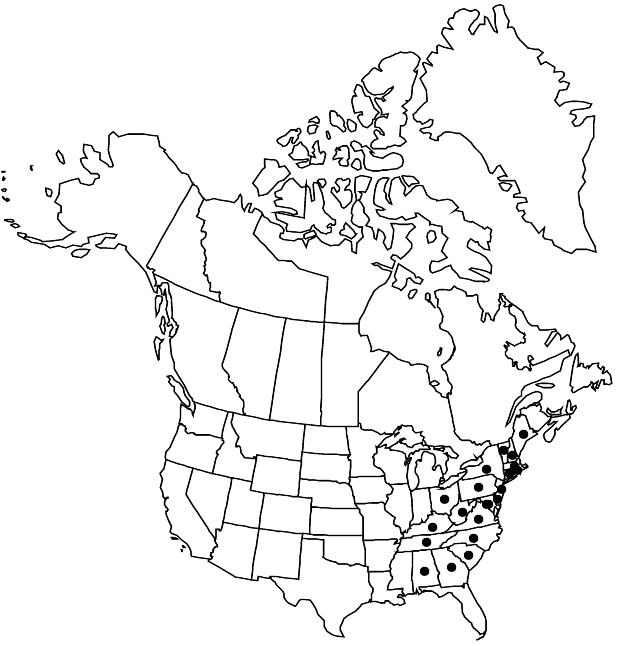Difference between revisions of "Lyonia ligustrina var. ligustrina"
Endemic
Treatment appears in FNA Volume 8. Treatment on page 501.
imported>Volume Importer |
imported>Volume Importer |
||
| Line 45: | Line 45: | ||
|publication year= | |publication year= | ||
|special status=Endemic | |special status=Endemic | ||
| − | |source xml=https:// | + | |source xml=https://bitbucket.org/aafc-mbb/fna-data-curation/src/2e0870ddd59836b60bcf96646a41e87ea5a5943a/coarse_grained_fna_xml/V8/V8_978.xml |
|subfamily=Ericaceae subfam. Vaccinioideae | |subfamily=Ericaceae subfam. Vaccinioideae | ||
|genus=Lyonia | |genus=Lyonia | ||
Latest revision as of 23:47, 5 November 2020
Buds glabrous or sparsely hairy. Inflorescences not conspicuously bracteate; bracts usually all similar to bracteoles (sometimes 1 or 2 larger, leaflike, to 5–15 mm). Pedicels (1–)2–7.5 mm.
Phenology: Flowering spring–early summer.
Habitat: Moist to dry, acid woods and thickets, stream or pond margins, acid swamps or bogs, grassy and/or heath balds
Elevation: 0-2000 m
Distribution
Loading map...

Ala., Conn., Del., D.C., Ga., Ky., Maine, Md., Mass., N.H., N.J., N.Y., N.C., Ohio, Pa., R.I., S.C., Tenn., Vt., Va., W.Va.
Discussion
Selected References
None.
Lower Taxa
None.